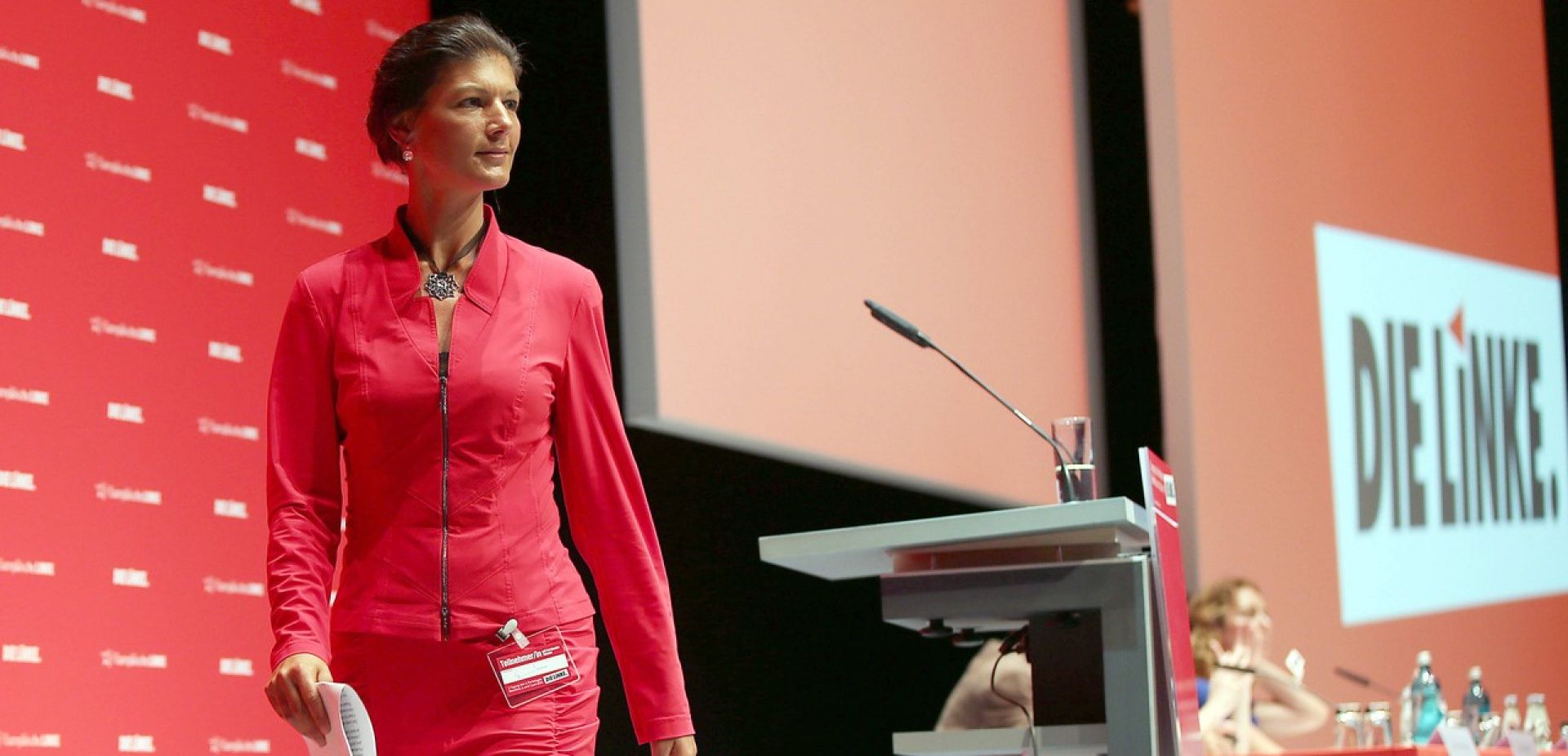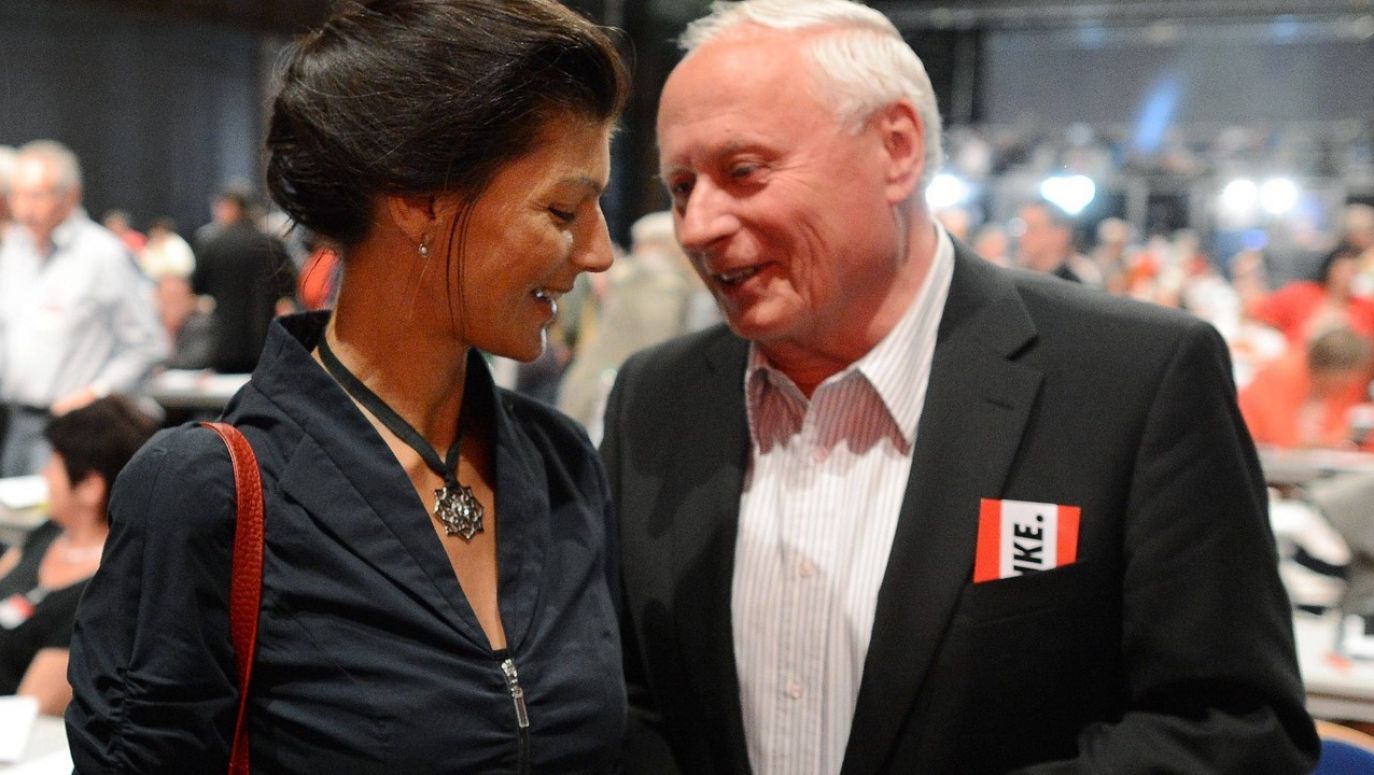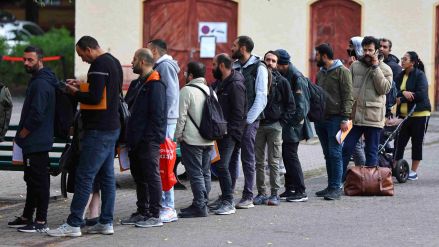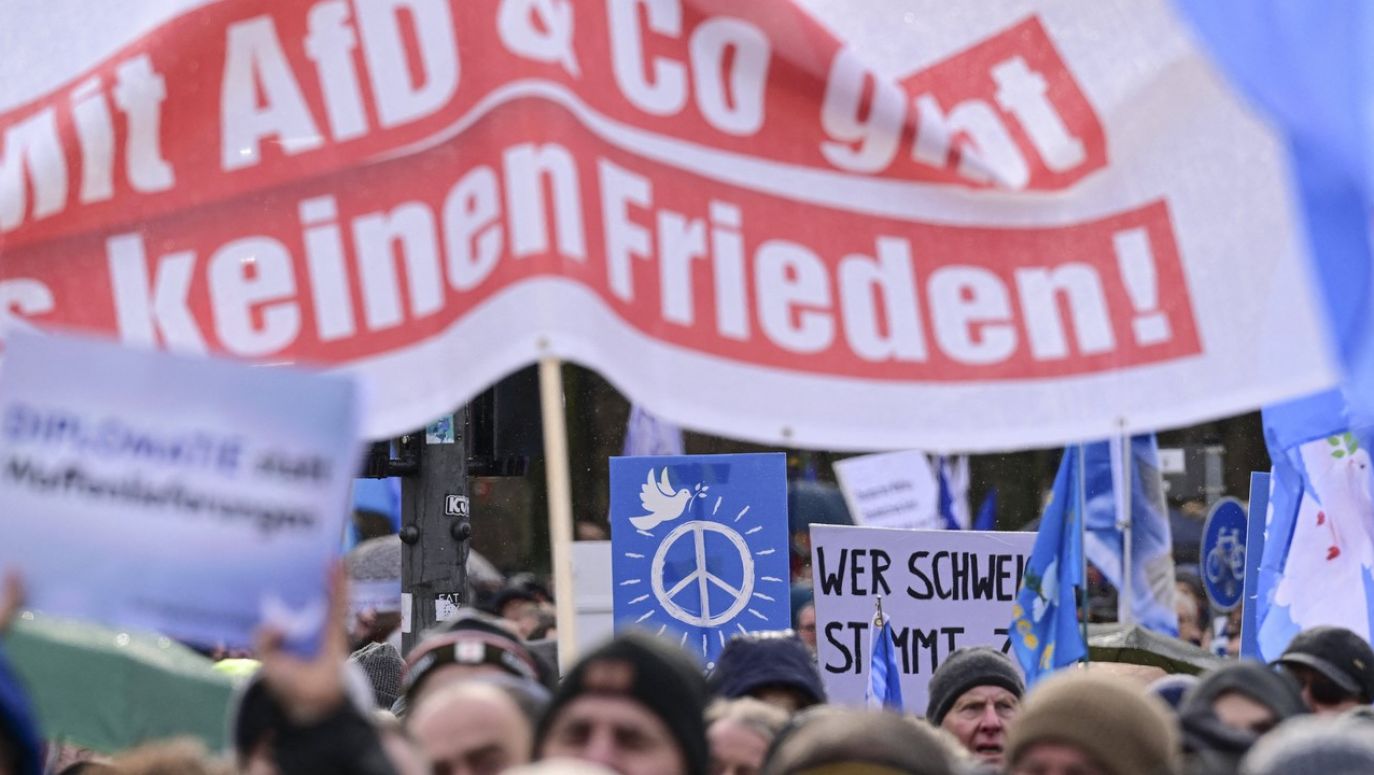After these words, Wagenknecht points to Denmark and, like the politicians from AfD, praises its strict immigration policy (to be clear, the Christian Democrats also discovered the Danish model some time ago, but stopped praising the social democrats from Copenhagen when the AfD began to champion the Danish’s inflexibility). According to Wagenknecht, Denmark has shown how to “regain control”. Control is an important word in Wagenknecht’s rhetorical arsenal. She often repeats that the federal government has lost control of the state, that Germany has lost control over its own economy by cutting itself off from cheap raw materials from Russia. During the October 23 conference, Wagenknecht even mocked the government for first imposing sanctions on Russia, then cutting itself off from raw materials, and finally importing Russian oil indirectly through India and gas through Belgian ports.
This affinity for Russia connects Wagenknecht with AfD, as does the demand to revive both Nord Streams, calling for negotiations between Russia and Ukraine, and opposing the delivery of weapons to Kyiv. The spark for February’s demonstration at the Brandenburg Gate was the so-called “Manifesto for Peace”, initiated by Wagenknecht and Alice Schwarzer, doyenne of German feminism and editor-in-chief of the magazine
Emma, calling on Scholz to stop military aid to Ukraine. Nearly a million Germans have already signed it. Another demonstration will take place on November 25 in Berlin. The previous one gathered, according to various estimates, from 15 to 50 thousand people, a mixed company, as both post-communists and sympathisers, or even politicians from AfD, including co-chair Tino Chrupalla, signed the manifesto. The question is how many people will now come to the demonstration, which at the same time may turn into a rally supporting Wagenknecht. Information about the planned event appeared in the November-December issue of
Emma magazine, right after a multi-page interview with Alice Schwarzer and Sahra Wagenknecht. The magazine’s cover features a photo of Wagenknecht with the caption: “What does Sahra W. plan?”
The interview itself, conducted in a casual conversation over wine at Wagenknecht and Lafontaine’s rural estate, seems forced. Schwarzer’s unnecessarily elaborate and leading questions are often longer than Wagenknecht’s evasive answers. Anyway, those who have slogged through dozens of interviews with the Red Sahra will find nothing fresh in this conversation, except for the declaration of how Wagenknecht’s programme is supposedly different from what the AfD has been offering for years. Here she strikingly states that “AfD does not recognize the West’s co-responsibility for the situation in the countries of origin of migrants coming to Germany and that it serves up racist resentments; besides, AfD advocates economic and social policies that would increase inequalities, namely greater privatisation and dismantling of the welfare state.” And that’s all.
The rest, that is, the attitude towards Russia, the war in Ukraine, the mistakes of immigration policy, policies during the pandemic, cutting off from cheap Russian raw materials, the stance towards NATO and the USA (hostile), criticism of the green transformation, reindustrialization of Germany, etc. – all these elements are the same for AfD and the future Wagenknecht party. The changes are cosmetic, unless we descend to the level of eloquence and literary studies. Here Wagenknecht can recite a fragment of Goethe’s
Faust II from memory, while AfD co-chair Tino Chrupalla has trouble naming his favourite German poem. Will the new left-conservative force sweep AfD off the political chessboard?
For now, it will greatly harm its mother party, Linke, and time will tell about the potential of the Wagenknecht Party in a few months. Everything that happens before that will only be theatre for citizens of Germany increasingly weary of the political consensus.
– Olga Doleśniak-Harczuk, Antoni Opaliński
TVP WEEKLY. Editorial team and jornalists
– Translated by jz 

 SIGN UP TO OUR PAGE
SIGN UP TO OUR PAGE 







